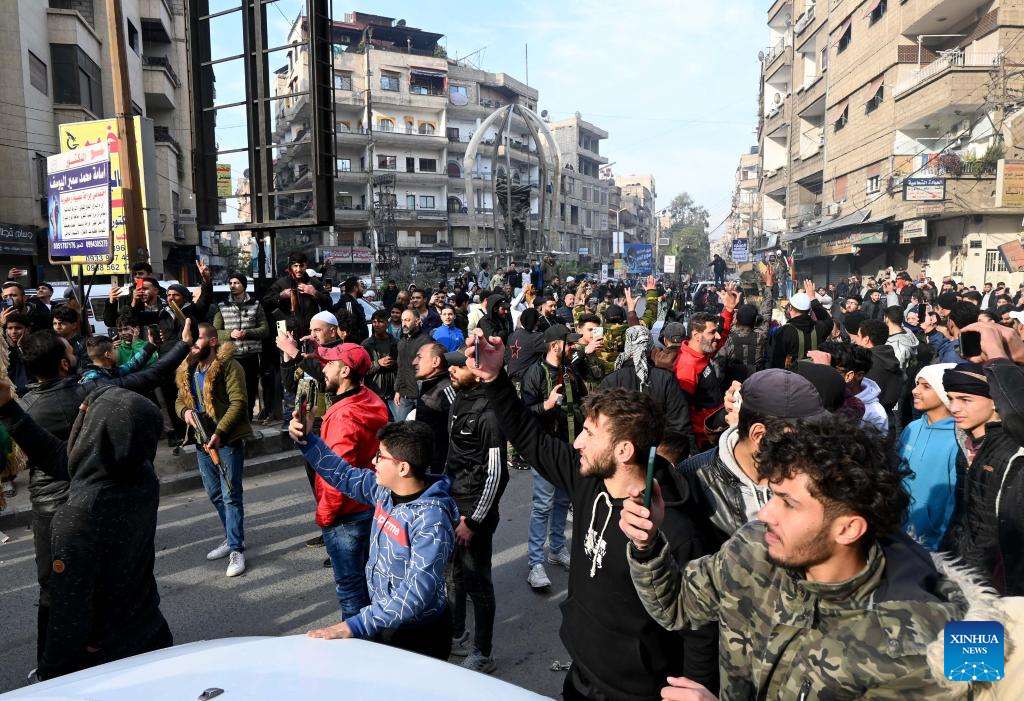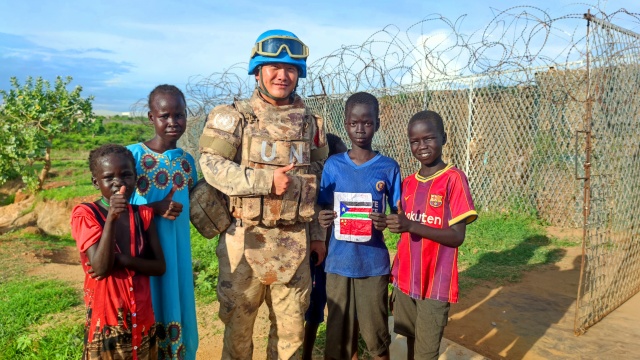
Taking advantage of the ongoing conflict in Gaza and Lebanon, Syria's rebel groups, a coalition with a complicated composition and backed by foreign forces including the United States and Turkiye, launched a surprise offensive against Syria's pro-government forces last month.
In a stunning development on Sunday, these opposition forces claimed to have taken Damascus, the country's capital, and announced an end to President Bashar al-Assad's government. This has sent shock waves around the world as it spells more uncertainties for an already crisis-ridden region.
It also means even more suffering for the Syrian people.
In a statement on Sunday, the Chinese Foreign Ministry said that it hopes Syria will regain stability as soon as possible, and called on all relevant parties to take measures to ensure the safety of Chinese institutions and personnel in the country.
The lightning advance of the Syrian rebel forces has plunged the Middle East country into further violence, chaos and now an alleged regime change, dealing yet another heavy blow to the fragile fabric of the country and the broader region's peace and stability.
Before the alleged fall of Damascus, the rebels had already captured several other big Syrian cities including Aleppo and Hama. The abrupt escalation of tensions in Syria has thrown the country into a fresh spiral of violence that has brought even more grief and an ever-worsening humanitarian disaster to the Syrian people.
The United Nations has warned that the humanitarian situation continues to deteriorate, with more than 370,000 Syrians being displaced and many others trapped in frontline areas. UN Resident Coordinator and Humanitarian Coordinator for Syria Adam Abdelmoula said in a statement on Sunday that the latest violence has "resulted in the tragic loss of innocent civilian lives, including women and children, damage to civilian infrastructure, and the suspension of critical services".
Syria was already suffering a humanitarian crisis resulting from the civil war in the country that is now in its 14th year, with around 90 percent of families in Syria living in poverty. After years of civil war and unrest and the heavy toll of US sanctions against Syria, Syrian people have already suffered greatly.
Before the recent influx of more than half a million returnees and refugees from Lebanon, there were more than 16.7 million people in Syria in need of humanitarian assistance. The dire humanitarian situation needs more than expressions of sympathy.
Influential players in Syria's civil war, especially those with sway over the rebel coalition, should look to the larger humanitarian picture and the need for stability in the region, rather than relentlessly exploiting the sufferings of Syrian people in selfish pursuit of their own strategic interests.
What is happening in Syria is yet another consequence of the Israel-Hamas conflict which began more than a year ago. With Washington's backing and encouragement, Tel Aviv has struck against one force after another in the Middle East, with its military launching attacks near and far against Hamas, Hezbollah and even targets in Syria. Israel's reckless war machine has broken the region's power balance and given Syria's rebels the opportunity they were looking for.
The new wave of violence in Syria, the first significant one since 2016, has plunged the country deeper into crisis and aggravated its people's plight. It has also opened a new chaotic front in the Middle East that has just seen a glimmer of hope for peace with the newly-reached Lebanon truce.
Any humanitarian violation must be condemned, and so must any foreign interference aimed at instigating regime change in the country. Relevant UN resolutions on Syria must be upheld and the international community should support a peaceful and proper resolution of the crisis in Syria through inclusive political dialogue at an early date.













